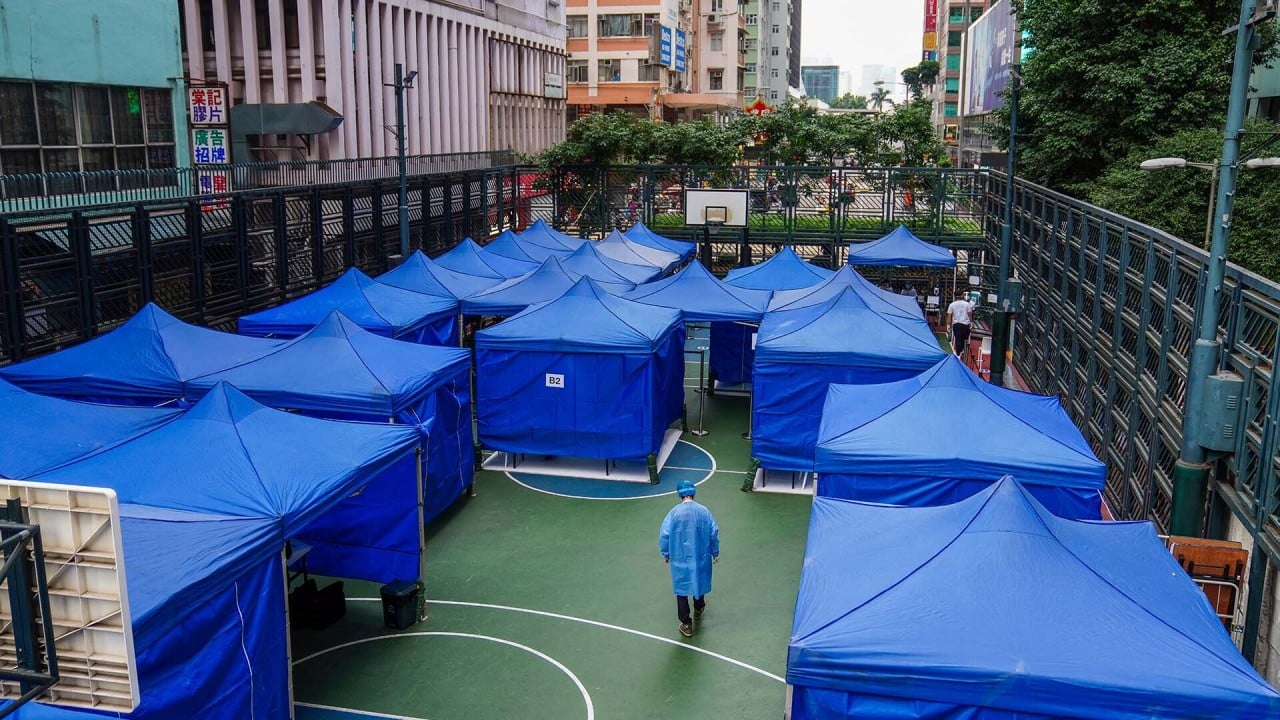Hong Kong coronavirus: Mandatory testing ordered as clusters grow, while 104 new cases confirmed
- Government to require residents and workers affected by five outbreaks to undergo screening
- But authorities decide against invoking new lockdown powers, even while admitting some residents at one stricken estate had left their homes

The screening requirement was imposed as officials confirmed 104 new infections, more than a third of which were untraceable.
Amid mounting alarm over the expanding clusters at housing estates, a construction site and a major department store, health experts were divided on whether the government should invoke a newly gazetted law to seal off the buildings and force everyone deemed to be at risk to get tested.
While some have argued lockdowns would stop unknowing carriers of the virus from entering the wider community, others have warned the extraordinary curb must be used with extreme caution.

02:02
Fourth wave of coronavirus cases in Hong Kong prompts tougher Covid-19 measures
A leading health official said the government would employ the new power selectively.
“There are many situations where the law can be used,” said Dr Chuang Shuk-kwan, head of the communicable disease branch at the Centre for Health Protection.